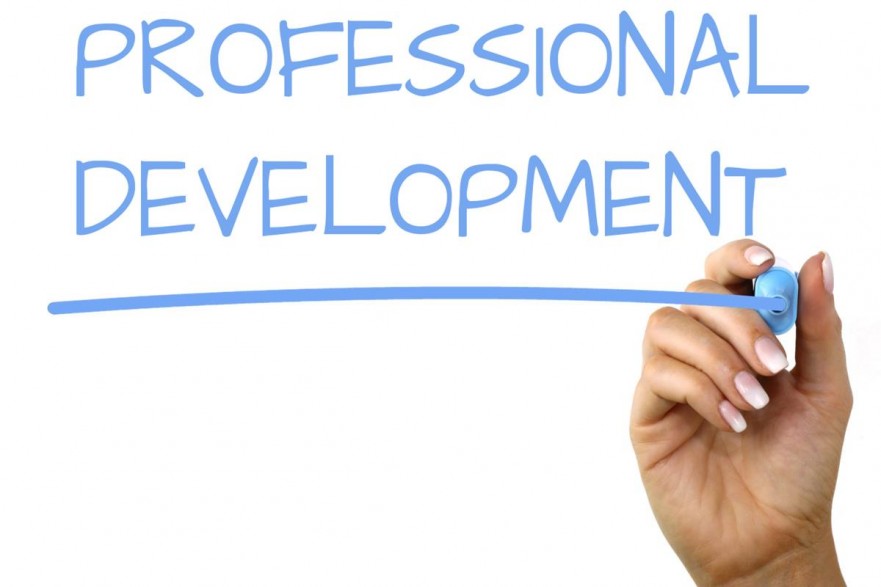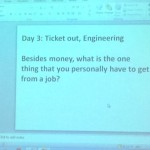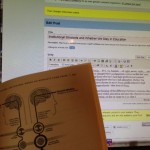Every few years I write that if you pay attention, the best professional development often comes out of nowhere, is free, and lasts only minutes – or even seconds. (You can read the earlier posts here and here.) Here are some ways I’ve recently “been schooled” to be a better teacher. Each, in its own way, demonstrates the power of caring.
The Power of Confrontation
The tone and anger behind the words surprised me. A peer had just confronted me for a failure to complete a professional task. I was mad and hurt. I knew our paths would cross again soon and didn’t know how I would act or what I would say. It didn’t matter because when we next saw each other, they took the lead:
“Do you feel bad about what I said?”
“Yes.”
“Sandy, you have to understand that I always have the highest possible expectations of you.”
No apology, no condescension, just a handful of unexpected words, expressed with emotion, that turned out to be exactly what I needed to hear. A colleague I care deeply for and respect so much had not torn me down after all. Rather, they had restored a part of me that I didn’t know was missing. Imagine breathing again after not realizing you had been suffocating. That’s what it was like to be forcibly reminded of my capacity as a teacher.
Lesson One: Nothing empowers me as a teacher more than someone I care about needing me to be as strong as I can.
I have feelings, too, you know
I learned recently that expressing my feelings, at the right time and in the right moment, can do a lot more for relationships and classroom behavior than any exercise of authority. Near the end of the first quarter, I was constantly at war with a student I’ll call Melody. We were at each other every day. She did no work, disrupted the class daily, and as the quarter wore on, Melody became openly and provocatively defiant. She would get out her phone, walk right by me texting, and when I told her to put it away and sit down, walk out of class completely. Her parent contact information was out of date and her behavior didn’t merit referrals to the office, so I dreaded the thought of three more quarters like this.
Then one day two girls in her class were playfully arguing with each other about which of them was my favorite student. “Neither,” I said, “It’s Melody.” Melody’s head spun so fast when she heard that she almost got whiplash. I looked right at her and said, “That’s why it hurts so much when you’re mean to me.” She was quiet the rest of the period and the next day greeted me with big, “Hi, Mr. Merz!” Since then we’re doing fine together, we’ve had our run-ins, but they’re over fast and nothing gets carried forward.
Lesson Two: Students can’t care about how we feel until they know how we feel.
“That other class has fun”
The other day I got after a math student I really like for socializing. She said she wanted to change her schedule and go with the other math teacher. I pretty much ignored her comment thinking it was just said in the moment. But a few days later, for no obvious reason, she said it again. I asked her why, and she said they have fun in the other class. She explained that once a week they play a math game with prizes and treats.
Well, shoot, if you want games, you’ll get games. So, we too started playing a weekly math game with members of the winning team being exempt from the next week’s review homework. It’s been great. Kids look forward to it, they argue among their friends about why their answers are right, and I have fewer papers to grade each week. How many wins are in that?
I didn’t want them getting bored of the routine and decided to change things up. Discipline at my school is pretty bad right now, for reasons far beyond the scope of this post. So, instead of a review game last week, I set the behavioral goal of significantly reducing offensive language for a week. That meant more than just avoiding the usual bad words. They also had to avoid insults, sarcasm, and so forth. I said that no one would win unless everyone won, but also that one or two people couldn’t spoil it for the class. The payoff would be to take a day off this week and play Human Foosball. If you haven’t seen it, look it up. (We played on a field with students holding onto ropes to keep in line.)
Five out of six classes met the goal. Best of all they mostly achieved the goal by policing themselves. Well, maybe best of all was the more civil language in class.
Yesterday was game day, and we had a hoot. After class I asked the girl who started it all if class was getting any more fun and got a nod, her biggest smile, and a big thumbs up.
Lesson Three: Kids care about being heard and can make great things happen when they are.
Each of these lessons have improved classroom management, student performance, and my strength as a teacher. But ultimately they have have amounted to self-care by strengthening emotional bonds with others and resting in the peace that follows.









